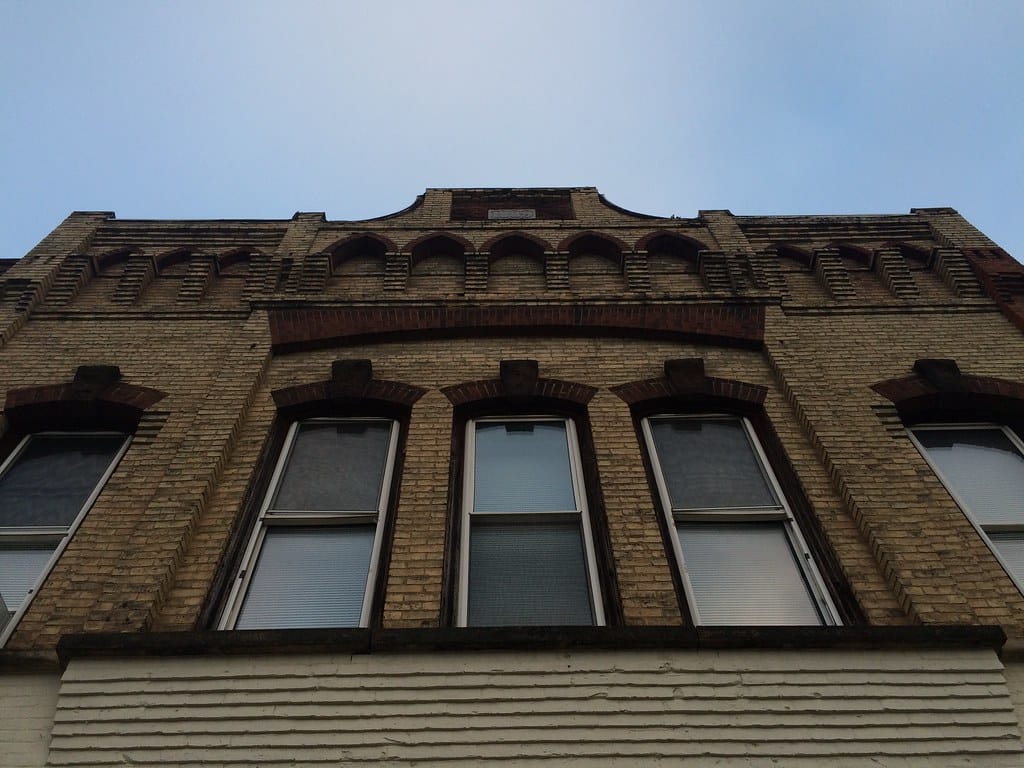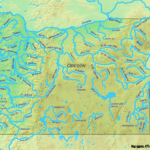Nestled in the picturesque Driftless Area of Wisconsin, a region untouched by glaciers, lies the charming village of Wonewoc. Join us as we explore this hidden gem, delving into its rich history, vibrant community, and the stunning natural beauty that has drawn visitors for generations. From the dramatic bluffs that may have inspired the town’s Ho-Chunk name, *Wonį́wąk* (with varying interpretations), to the tranquil Baraboo River, Wonewoc offers a glimpse into a slower pace of life where the past feels remarkably present. Discover the hidden charms of [Wisconsin Necedah](https://www.lolaapp.com/wisconsin-necedah) and embark on an unforgettable journey. Uncover the unique allure of [Wolcottville Indiana](https://www.lolaapp.com/wolcottville-indiana) and experience its captivating blend of small-town charm.
Wonewoc’s Story: From Wilderness to Village
Wonewoc’s history isn’t just found in textbooks; it’s woven into the landscape and the spirit of its people.
Early Days and Pioneer Spirit
In 1842, explorers George Willard, Don Carlos Barry, and Alexander Draper ventured into the Wisconsin wilderness, recognizing the potential of its untouched forests. Just a few years later, in 1849, Willard established a logging camp, a testament to the vision and hard work of these early pioneers. This camp, producing over a million feet of lumber with basic tools, became the seed from which Wonewoc would grow. George and Lucinda Willard cemented their place in Wonewoc’s history by establishing a permanent homestead in 1851, solidifying the foundation for the future village. By 1854, the village was officially platted, a pivotal moment in its development.
Boom Years and Growth
The 1860s ushered in an era of prosperity for Wonewoc. The hop craze swept the nation, and Wonewoc’s fertile lands were ideal for cultivation. The arrival of the railroad in 1868 transformed the village into a vital shipping hub for lumber and agricultural goods. Wonewoc’s location on the rail line solidified its regional importance, leading to its official incorporation in 1878.
The Ho-Chunk Legacy
The story of Wonewoc predates the arrival of European settlers. The Ho-Chunk Nation were the original inhabitants of this land, and their presence is reflected in the village’s name. The meaning of Wonį́wąk is a subject of ongoing discussion, with interpretations ranging from “howling hills” to “to be wicked, bad,” as suggested by Josephine White Eagle. This connection to the Ho-Chunk language adds a layer of complexity to Wonewoc’s history, prompting further exploration and a deeper appreciation for the region’s cultural heritage.
A Community Forged in History
Wonewoc’s journey continued beyond the initial boom, navigating economic shifts and evolving industries. The decline of the lumber industry and changes in agricultural practices shaped the village’s trajectory, demonstrating the resilience of its people. Understanding these later chapters enriches our appreciation for Wonewoc’s enduring spirit.
Experiencing the Driftless Charm
The Driftless Area isn’t just a geological designation; it’s integral to Wonewoc’s identity. This unique landscape provides a haven for outdoor enthusiasts. Imagine paddling down the Baraboo River, casting a line for local fish, or hiking the rugged bluffs for breathtaking views. Nearby lakes like Dutch Hollow offer opportunities for swimming, boating, and peaceful relaxation. For those seeking adventure, the 400 Trail, which bisects Wonewoc, offers miles of scenic trails for hiking, biking, horseback riding, and snowmobiling. The Wonewoc Spiritualist Camp provides a tranquil retreat for those seeking spiritual renewal and connection.
The Heart of Wonewoc
Beyond its natural beauty and rich history, Wonewoc thrives on its strong sense of community. Local churches, including the United Methodist Church, St. Paul’s Lutheran Church, and St. Jerome’s Catholic Church, serve as vital community hubs, offering support and connection. From the Village President and Board of Trustees to friendly shopkeepers and residents, Wonewoc embodies small-town charm and a welcoming spirit. Notable figures like Belle Case La Follette, a prominent suffragist, and Job Grant, an early settler and legislator, have contributed to Wonewoc’s rich tapestry of community involvement. The Wonewoc Formation, a significant geological layer first identified in the village, adds another dimension to its historical significance.
Planning Your Wonewoc Adventure
Wonewoc offers a variety of lodging options, from cozy cabins to spacious homes available through Airbnb and Vrbo. Dining choices range from casual cafes to family-friendly restaurants. Getting to Wonewoc is easy, with accessible roads and online directions.
Unraveling the Meaning of Wonį́wąk
The name “Wonewoc” itself is an enigma, sparking curiosity and inviting deeper exploration.
Multiple Interpretations
- Howling Hills: This commonly cited translation evokes a sense of the region’s topography, but may not capture the full meaning.
- To Be Wicked, Bad: Josephine White Eagle’s interpretation, “to be wicked, bad,” adds a layer of intrigue, potentially reflecting the challenges or spiritual significance of the land.
- They Howl: The State Historical Society’s suggestion of a Chippewa origin, “Wo-no-wag,” meaning “They Howl,” introduces another perspective.
A Journey of Discovery
Unraveling the true meaning of Wonewoc involves careful research, linguistic analysis, and respect for the Ho-Chunk cultural heritage. Considering the historical context of colonization and its impact on indigenous languages is vital. While a definitive answer may remain elusive, the exploration itself enriches our understanding of this unique place. The ongoing research and diverse interpretations surrounding Wonį́wąk underscore the need for continued investigation and a nuanced approach to understanding its meaning. Consulting with language experts, particularly those specializing in Hoocąk, could provide valuable insights.
| Possible Meaning | Source/Language | Notes |
|---|---|---|
| “Howling Hills” | Common Interpretation | Often cited, but possibly romanticized. |
| “To be wicked, bad” | Hoocąk (Winnebago) | Offered by Josephine White Eagle, suggesting a deeper, potentially more accurate meaning. |
| “They Howl” | Chippewa | Suggested by the State Historical Society in the 1920s, requires further verification. |
“Wonewoc” beckons travelers to experience its unique blend of history, nature, and community. It’s a place where the echoes of the past resonate in the present, inviting us to discover the hidden gems of the Driftless Area.
- Unlock Black Pepper’s Secrets: A Complete Guide - April 26, 2025
- Discover Long Black Pepper: Flavor & Health Benefits - April 25, 2025
- Shocking Twists: The Grownup Review: Unreliable Narration - April 25, 2025
















